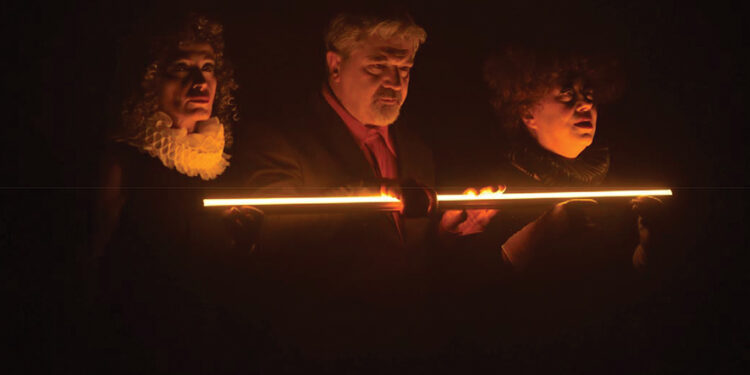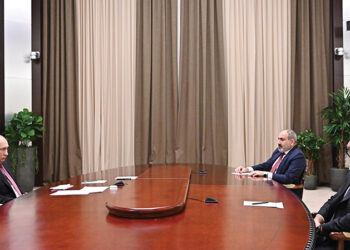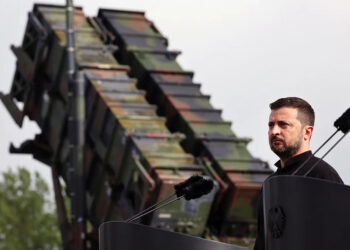In a bold move that reaffirms the value of inclusivity within contemporary Georgian theater, Theater Factory 42—Tbilisi’s vibrant and socially attuned performance space—announced a series of May performances with English subtitles, inviting non-Georgian speakers to engage directly with its emotionally resonant and formally inventive productions. These include The Nose (May 4 & 23), The Conductor (May 11), and 1921–1924 (May 18)—works that reflect the theater’s aesthetic versatility and its commitment to current cultural conversations.
But this is more than a convenient translation service. The inclusion of subtitles signals a broader, vital shift in the Georgian theater landscape: a commitment to internationalism, accessibility, and cultural dialogue in a city where language can still act as an accidental barrier. It’s a gesture that opens the doors of an intimate and turbulent art form to global audiences without diluting its emotional and political force.
Founded by Levan Tsuladze and a collective of artists seeking a space outside institutional norms, Theater Factory 42 took shape in a repurposed Soviet-era industrial building. The venue now serves as a laboratory of contemporary expression, staging performances that reflect the social, historical, and psychological tensions of Georgia’s recent past and uncertain present.
Rather than proclaiming itself radical, Factory 42 thrives on immediacy. Its productions are grounded in the textures of daily life and the echoes of history, but always delivered with a language that speaks to the now. Whether through movement, music, or dialogue, this is a theater that listens closely to its time—and responds with urgency, empathy, and imagination.
In works like 1921–1924, which reflects on Georgia’s brief period of independence before Soviet annexation, or The Nose, a satirical reinterpretation of Gogol’s absurdity through the lens of modern-day disorientation, the theater addresses questions of power, memory, and identity—not from a distant ideological perch, but from within the very communities it portrays.
For expats, international students, and traveling artists, catching a Georgian play used to be a niche frustration: the language barrier left many cultural moments just out of reach. Subtitles, then, are not just practical—they’re symbolic. They represent a theater that wants to be heard by outsiders, not by simplifying itself, but by creating shared access.
But subtitling theater is not easy. Unlike film, where timing and dialogue are fixed, live theater is fluid. Actors improvise, rhythms shift, scenes stretch or contract. Subtitlers must be precise, adaptive, and deeply sensitive to theatrical timing, all while retaining the emotional truth of the original script.
This is why not every theater can promise it. The Rezo Gabriadze Marionette Theater, for example, is among the few that guarantees subtitles for nearly every performance, while others—including the Rustaveli National Theater, Open Space Center for Visual and Performing Arts, Vaso Abashidze State New Theater, and Royal District Theater—offer them selectively, usually during international festival periods or for selected foreign guests.
The reality is this: producing subtitles costs money, energy, and rehearsal time. It’s not enough for a theater to want to be international—it must also be convinced that someone is listening. In this sense, subtitled performances are a form of social contract. The more foreign spectators show up for subtitled shows, the more institutions will feel the investment is worth it. If the seats remain empty, that contract breaks.
The Georgian Showcase, part of the annual Tbilisi International Festival of Theater, remains one of the most immersive and reliable ways to experience the richness of contemporary Georgian theater. For years, this program has been the safest bet for non-Georgian speakers wanting to experience the country’s most urgent contemporary productions. Most shows in the Showcase include subtitles, often as part of curated efforts to connect Georgian theater to global circuits. It’s a reminder that Georgia is no longer on the periphery of European performance—it’s in conversation with it.
Still, as any seasoned theater-goer will tell you, the most electrifying experiences often happen outside the festival circuit—in spontaneous shows in repurposed spaces, in political plays rushed to the stage in response to real-time events. For those moments, English subtitles—when available—serve not just as translation, but as inclusion.
Live theater offers something digital culture cannot: the presence of real bodies in space, the electricity of shared silence, and the risk of vulnerability. In cities like Tbilisi, where political turbulence is never far from the surface and generational memory remains raw, the theater becomes a space of both healing and confrontation.
Theater Factory 42 exemplifies this ethos—not with spectacle, but with attentiveness. It does not shout; it listens and responds. Subtitled performances are simply an extension of that listening—a way to bring new audiences into the room, not as tourists, but as co-witnesses.
A Practical Note for Theater-Goers
If you’re planning to attend a subtitled show in Tbilisi, always confirm with the venue in advance—subtitles may be planned, but technical or logistical constraints can interfere. The more spectators ask, the more likely subtitles will become a standard, not a luxury. Because, ultimately, translation is a form of care. And in a city where art often feels like an act of survival, care is exactly what theater has always promised.
By Ivan Nechaev














